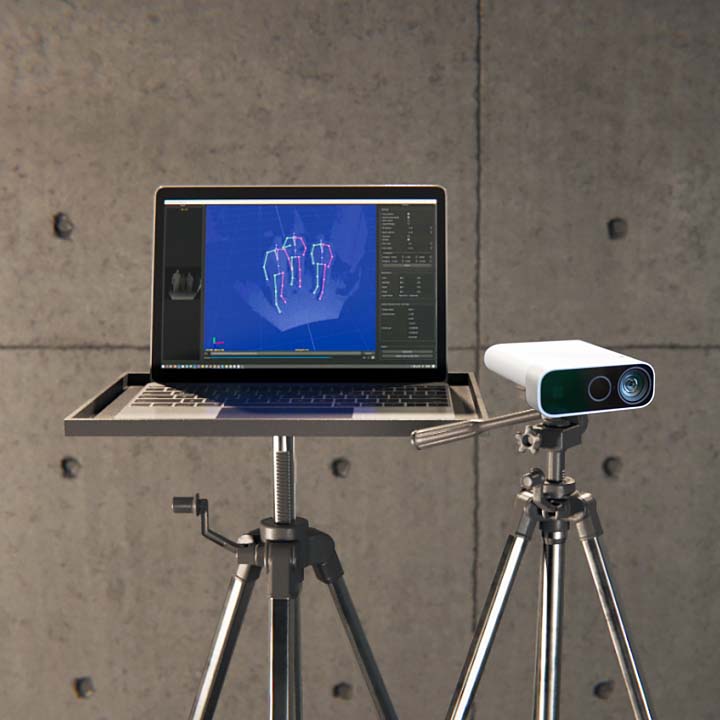Continuum
Dancing is part of the human experience. Some people engage in it as a social, physical or recreational activity, while others may feel awkward doing it. How could technology help them develop their body language ?
In order to free the dancer from his or her ego, we decided to focus this installation on experimenting with the harmonic relationship between space and body movement. Thinking movement as a continuum, a field of forces, we have developed a dynamic environment modulated by the dancer's gestures.
The dancer's movements thus become a visible aspect of the space. Pictured as a forest, the observation of its canopy helps the dancer to feel the centripetal and centrifugal forces, the paths and directions, that he can employ.
↳ Immersive environment prototype (Unity 2020.3.18f1)
↳ Continuum installation (480 × 270 x 40 cm)

↳ Human motion analysis, Azure Kinect setup
Process
On the hardware side, a computer connected to an Azure Kinect can capture the skeletal movements of one to six dancers in real time. In order to convert this raw data into variables that our software can use, we turned to Rudolf Laban, an Austro-Hungarian dance artist and theorist, known for having developed a dance notation and worked on many movement analysis tools.
Among these, the kinesphere, an icosahedron whose surface can be reached by the extended limbs, allows us to describe the position, the direction and the global amplitude of the body. These variables are then encoded and sent as a shader to be reflected in the environment on the graphics card side.
↳ Kinesphere implementation (three.js)
– Credits
- Julie Charrière
Valuable advice
- Hugo Bruvry
Design, development, 3D mockup